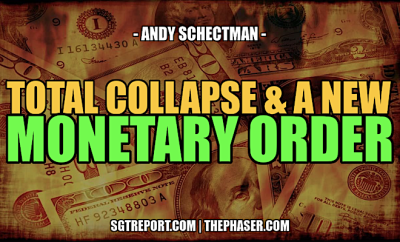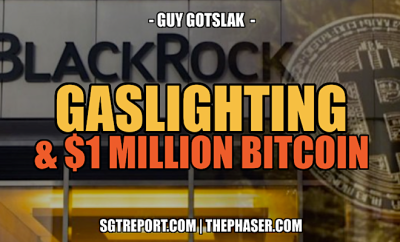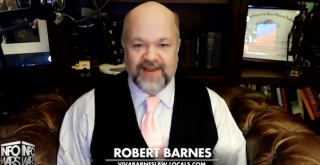 Liberty Blitzkrieg
Liberty Blitzkrieg
Economy
Former SEC Officials Demand SEC Chief: Stop Protecting Corporate Cronyism
by Michael Krieger, Liberty Blitzkrieg:
In early 2013, before Mary Jo White was confirmed as the head of the Securities and Exchange Commission (SEC), I wrote a post predicting she would be a bankster codling fraud in the post, Meet Mary Jo White: The Next SEC Chief and a Guaranteed Wall Street Patsy. Here’s an excerpt:
Obama’s nominee to head the SEC, Mary Jo White, is just another gatekeeper appointed to make sure no one ever goes after the Wall Street crime syndicate. As I have written about many times in the past, Obama does not nominate anyone to a high position of power in government who will not behave like a good little lapdog for Wall Street.
Despite Obama’s propagandist statement about how “you don’t want to mess with Mary Jo,” her background implies she will function as a useful servant to the financial oligarchs. Forget for a second about that fact at her recent firm Debevoise & Plimpton LLP her clients included the usual suspects such as such as JPMorgan Chase & Co. (JPM), Morgan Stanley (MS), and UBS AG, but she is actually known as the prosecutor who popularized the “slap Wall Street on the wrist” approach.
Two years later, and we can see this has come true with flying colors. In fact, “Mary Jo” is such a spineless patsy, three former top officials at the SEC recently wrote her a letter calling her out (thanks to Naked Capitalism for the heads up). Here’s the letter:
May 27th, 2015
Securities and Exchange Commission
100 F Street, NE
Washington, DC 20549Chair Mary Jo White:
We the undersigned, all former Commissioners and Chairs of the Securities and Exchange Commission (SEC), write in support of petition 4-637 (“to Require Public Companies to Disclose to Shareholders the Use of Corporate Resources for Political Activities”).
The petition has received a record-breaking 1.2 million supportive comments, illustrating the wide-spread importance of and need for action by the Commission to compel disclosure of political activities.
Despite the Supreme Court’s decision in Citizens United in 2010, allowing corporations greater freedom to spend shareholder money to influence politics, there have still been no new rules or procedures established to ensure that shareholders – those who actually own the wealth of corporations – are informed of decisions on spending their money on politics.
This lack of regulation is in direct conflict with one of the essential building blocks supporting the opinion in the case. It’s author, Mr. Justice Anthony Kennedy, justified permitting corporate political activities in large part on the expectation that shareholders and citizens would be informed of what those activities entailed. Thus, writing for the Court, he said:“A campaign finance system that pairs corporate independent expenditures with effective disclosure has not existed before today. With the advent of the Internet, prompt disclosure of expenditures can provide shareholders and citizens with the information needed to hold corporations and elected officials accountable for their positions…. Shareholders can determine whether their corporation’s political speech advances the corporation’s interest in making profits, and citizens can see whether elected officials are in the pocket of so-called moneyed interests.”
To date, the Court’s expectation of disclosure, which can only be assured by SEC rule, has been denied. It is now five years since Citizens United and almost four years since Petition 4-637 was filed. The Commission’s inaction is inexplicable. Its failure to act offends not only us, who are alumni of this agency struggling to retain our deep pride of association, but investors and the professionals who serve them. And it flies in the face of the primary mission of the Commission, which has since 1934 been the protection of investors. To use a metaphor, mandatory disclosure of corporate political activities should be a “slam dunk” for the Commission.
Sincerely,
William Henry Donaldson, 27th Chairman of the U.S. Securities and Exchange Commission,serving from February 2003 to June 2005 (R)Arthur Levitt, 25th Chairman of the U.S. Securities and Exchange Commission, serving from
1993-2001 (D)Bevis Longstreth, 60th Commissioner of the Securities and Exchange Commission, serving from
1981 to 1984 (D)
As I’ve said on many occasions, the primary job of modern American regulators is to protect entrenched status quo interests. Protecting the public doesn’t even factor into the equation.
For related articles, see:
Elizabeth Warren Confronts Eric Holder, Ben Bernanke and Mary Jo White on Bankster Immunity
Meet Mary Jo White: The Next SEC Chief and a Guaranteed Wall Street Patsy
How Jack “Bailout Bonus” Lew Got to Treasury
The Revolving Door Spins Again – Former SEC Enforcer to Join Private Equity Giant KKR
Read More @ Liberty Blitizkrieg.com

















